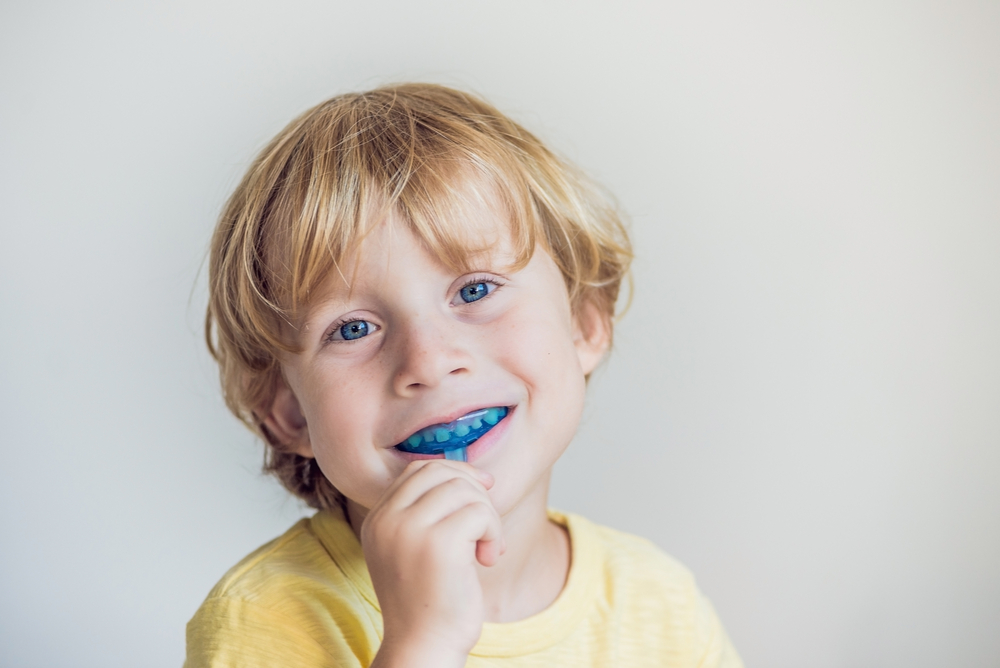What Is Bruxism?
Bruxism is an oral parafunctional activity where the teeth get ground, gnashed or clenched. This condition is common for children and adults alike. According to various reports, Bruxism occurs in 8-31% people in the general population.
It is an oral habitual of involuntary rhythmic or spasmodic nonfunctional grinding, gnashing or clenching of teeth which may lead to occlusal trauma due to the non-chewing movements in the mandible of the mouth.

Types Of Bruxism
Bruxism is an unconscious activity. There are mainly two types of bruxism which occurs both in kids and adults:
- Sleep Bruxism: In sleep, the bruxism takes place by clenching or gnashing of teeth due to the unconscious state of mind. It tends to be worse while waking up and gets even worse during the day. The sleep bruxism is considered to be dangerous since no one is aware of it.
- Awake Bruxism: This occurs mostly during the daytime or when a person is wide awake. It occurs due to the unconscious action when a person is anxious or in tension about something, he/she tends to clench his teeth. It is found that it occurs mostly in females. Since a person can alert himself, so it isn’t that serious but still, should be taken care of.
Cause Of Bruxism
The cause of bruxism is challenging to be guessed since it’s mostly unknown, but here are some causes approved by dentists:
- The unusual alignment of upper and lower teeth, i.e., malocclusion in adults results in bruxism
- The psychological factors like suppressed anger, anxiety, and tension or frustration triggers bruxism
- Due to the growth and development of children, bruxism occurs, since their upper and lower teeth do not fit together perfectly
- Even in some cases, it is found that bruxism occurs due to the Huntington’s or Parkinson’s disease
- The other cause of bruxism in children is that they grind their teeth due to tension or anger, allergy problems or as a response to any pain
Signs And Symptoms Of Bruxism
The signs and symptoms of Bruxism are mentioned below:
- If your sleep partner wakes up due to the loud sound of teeth grinding or clenching
- The flattened, chipped or worn out teeth
- Exposing the inside of the mouth due to the tooth enamel worn
- Increase in tooth sensitivity
- Jaw muscles are getting tightened or jaw pain
- Morning headaches or chronic facial pain
- A violent jaw muscle contractions .i.e., due to an earache
Prevention Of Bruxism
Since Bruxism occurs mainly during sleep, so wear a night bite plate or mouth guard before sleeping; This will prevent from clenching of teeth during your sleep and will stop it from worsening. The night bite plate will help to relieve the pressure on facial muscles and the jaw point.
The hot compresses from the plate on facial muscles will help to ease the pain and tightness of muscles due to bruxism. Even bruxism occurs due to psychological factors prevailing you. So, it’s better to get counseling for the hyperactive actions.
SEE ALSO: Pediatric Dentistry – Problems Solved, Advantages, And Risks.
Treatment For Bruxism
Treatment of Bruxism can be done in the following ways:
- If the bruxism is due to stress, then treat it with professional counseling which concerns with exercise and meditation.
- If the bruxism in a child is due to tension or fear, then talk to them before sleeping. Tell them their favorite storybooks which will relax them.
- Use a protective dental appliance like a splint or a mouth guard. A dentist makes a customized mouth guard fit in one’s mouth.

Dental Mouth Guards - Adapt proper mouth and jaw position to avoid bruxism. To keep your teeth from grinding and clenching jaw, rest your tongue upward with your teeth apart and lips closed.
- To counteract the bruxism, your dentist may change your medications if in case you take an antidepressant because of bruxism likely to occur due to antidepressant sometimes.
- Other than the above treatments, self-care is the most important treatment for any disease or conditions.
- Exercise, meditations and food habits help in reducing stress which will prevent bruxism.
- Cut alcohol and tobacco from your life.
- Have a dental examination once in 3 months or when any pain is felt in the mouth.
This condition is common among people. Dr. Kimberli Leal, New York Kids Dentist, recommends that using a mouth guard and managing your stress and psychological behaviors may prevent you from Bruxism. So, be relaxed and take care of yourself.

